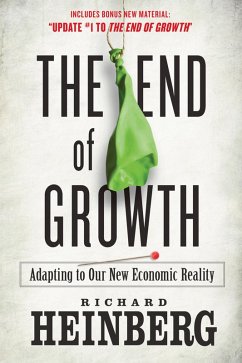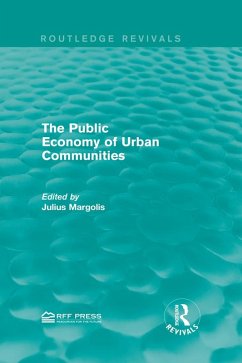
The Natural Step for Communities (eBook, ePUB)
How Cities and Towns can Change to Sustainable Practices

PAYBACK Punkte
7 °P sammeln!
Sustainability may seem like one more buzzword, and cities and towns like the last places to change, but The Natural Step for Communities provides inspiring examples of communities that have made dramatic changes toward sustainability, and explains how others can emulate their success. Chronicled in the book are towns like Övertorneå, whose government operations recently became 100 per cent fossil fuel-free, demonstrating that unsustainable municipal practices really can be overhauled. Arguing that the process of introducing change -- whether converting to renewable energy or designing comp...
Sustainability may seem like one more buzzword, and cities and towns like the last places to change, but The Natural Step for Communities provides inspiring examples of communities that have made dramatic changes toward sustainability, and explains how others can emulate their success.
Chronicled in the book are towns like Övertorneå, whose government operations recently became 100 per cent fossil fuel-free, demonstrating that unsustainable municipal practices really can be overhauled. Arguing that the process of introducing change -- whether converting to renewable energy or designing compact development -- is critical to success, the authors outline why well-intentioned proposals often fail to win community approval, and why an integrated approach -- not "single-issue" initiatives -- can surmount challenges of conflicting priorities, scarce resources, and turf battles.
The book first clarifies the concept of sustainability, offering guiding principles -- the Natural Step framework -- that help identify sustainable action in any area. It then introduces the sixty-plus eco-municipalities of Sweden that have adopted changes to sustainable practices throughout municipal policies and operations. The third section explains how they did it, and outlines how other communities in North America and elsewhere can do the same. Key to success is a democratic "bottom-up" change process, and clear guiding sustainability principles such as the Natural Step framework.
The book will appeal to both general readers wishing to understand better what sustainability means and practitioners interested in introducing or expanding sustainable development in their communities.
Chronicled in the book are towns like Övertorneå, whose government operations recently became 100 per cent fossil fuel-free, demonstrating that unsustainable municipal practices really can be overhauled. Arguing that the process of introducing change -- whether converting to renewable energy or designing compact development -- is critical to success, the authors outline why well-intentioned proposals often fail to win community approval, and why an integrated approach -- not "single-issue" initiatives -- can surmount challenges of conflicting priorities, scarce resources, and turf battles.
The book first clarifies the concept of sustainability, offering guiding principles -- the Natural Step framework -- that help identify sustainable action in any area. It then introduces the sixty-plus eco-municipalities of Sweden that have adopted changes to sustainable practices throughout municipal policies and operations. The third section explains how they did it, and outlines how other communities in North America and elsewhere can do the same. Key to success is a democratic "bottom-up" change process, and clear guiding sustainability principles such as the Natural Step framework.
The book will appeal to both general readers wishing to understand better what sustainability means and practitioners interested in introducing or expanding sustainable development in their communities.
Dieser Download kann aus rechtlichen Gründen nur mit Rechnungsadresse in A, D ausgeliefert werden.













